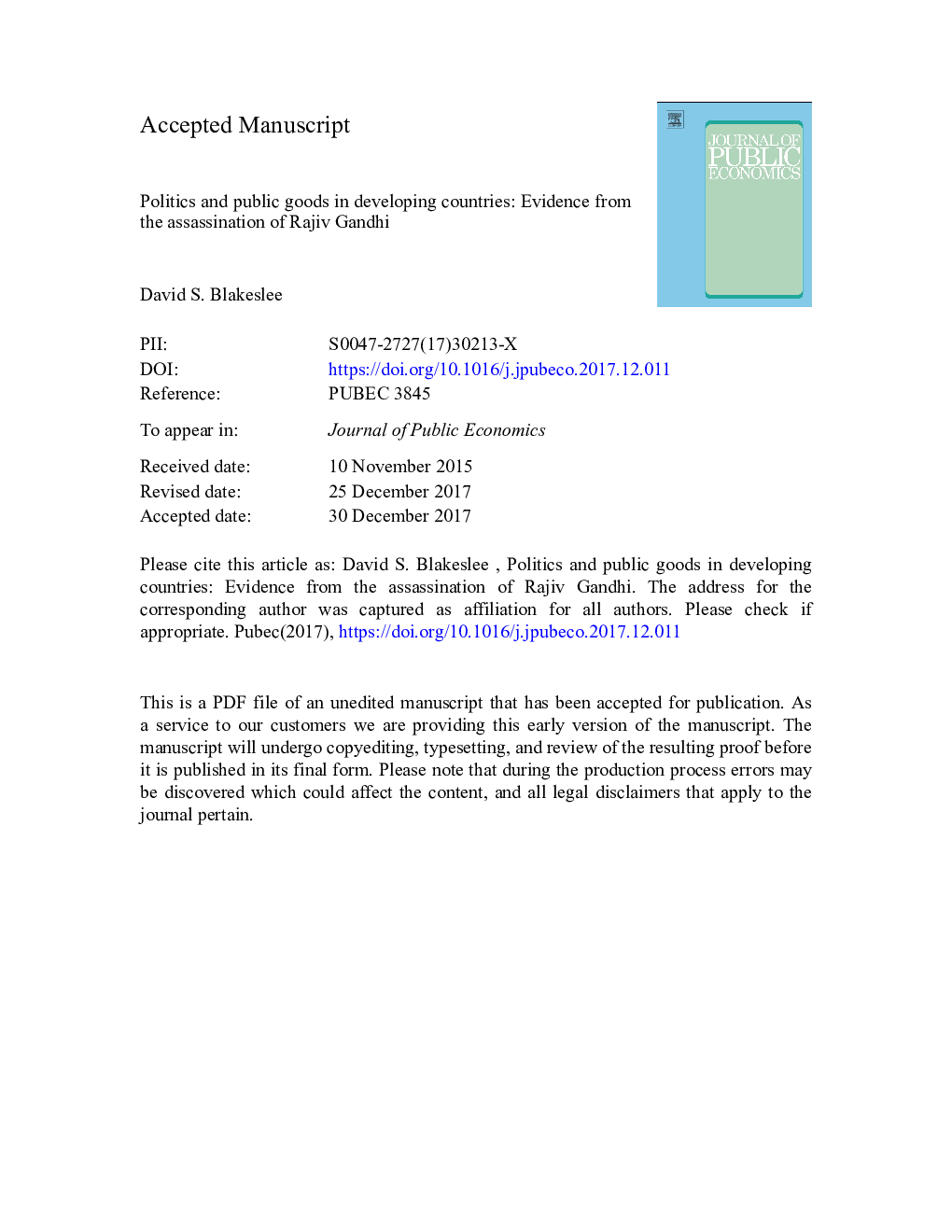| Article ID | Journal | Published Year | Pages | File Type |
|---|---|---|---|---|
| 7369330 | Journal of Public Economics | 2018 | 62 Pages |
Abstract
This paper employs an instrumental variables strategy to identify the effect of party ideology on policy outcomes. Exogenous variation in party representation is generated by the assassination of the leader of the Congress party, which occurred midway through India's national elections in 1991, and dramatically increased the probability of Congress victory for a subset of constituencies. Representation by the Congress party leads to a substantial increase in the provision of public goods favored by the poor, consistent with the party's expressed populist agenda. Among the salient changes are increases in the availability of drinking water and primary education, and declines in agricultural and industrial electrification and telephone coverage. I compare these effects to those obtained using a regression discontinuity design, and find that the latter yields little effect of Congress representation on public goods allocations.
Related Topics
Social Sciences and Humanities
Economics, Econometrics and Finance
Economics and Econometrics
Authors
David S. Blakeslee,
